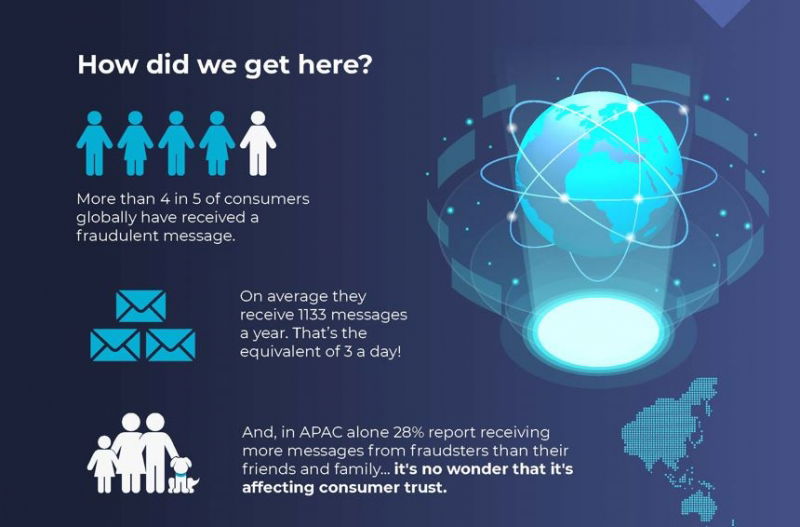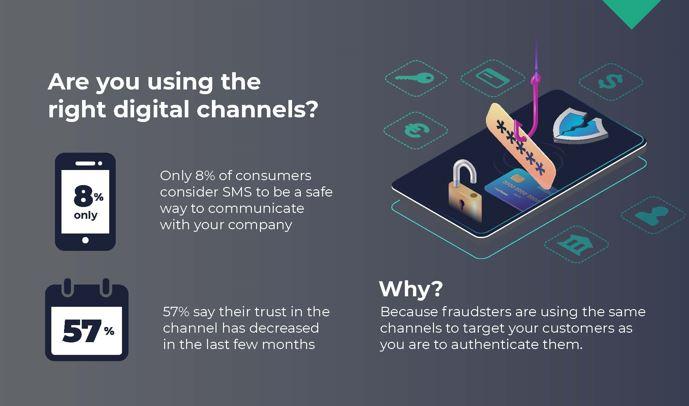



Study: Brand trust dips with fraudsters impersonation scam texts and calls
share on
Consumers believe that banks, retailers and mobile operators need to do more to protect them and their personal information from fraudsters, said a recent study by Callsign. The survey of global consumers – including Hong Kong, India, Indonesia, Philippines, and Singapore - revealed that almost half (45%) of consumers say their trust in businesses such as banks, retailers, mobile network operators and delivery companies, has decreased due to persistent scams spoofing brand names.
Over 42% of global consumers are asking mobile network operators to do more to stop scammers, and a third (33%) asking the same of banks.
The study said that trust in these organisations is eroding fast because consumers say they are overwhelmed by scam messages from fraudsters spoofing brand names daily. The problem has become so pervasive that consumers mistrust the technology, processes designed to protect them from fraudsters and confirm identities with many adamant that users must prove beyond doubt who they are when logging in to use a platform, and that there should be an online identity system to quell the surge of scams.
"Callsign's data demonstrates that consumer trust in our digital world has vanished and, rightly or wrongly brands, are being blamed. Yet the sense is that little is being actually done to purposely re-establish digital trust through complete and accurate digital identities," explained Stuart Dobbie, senior vice president, innovation, Callsign.
Consumers claim to have received scams through email (67%), SMS (57%), phone (46%), messaging apps (33%) and social media (23%) in the last year.
However over a third (37%) of global consumers don't know where or who to report a scam message to, or simply get too many to bother (34%). Over half of all consumers don't trust organisations to keep their data safe and 43% of scam victims react with suspicion wanting to know where fraudsters got their details.



"The solution lies in re-thinking how we fight fraud and how we identify people online. Current approaches tackle both challenges by only identifying fraud," said Namrata Jolly, general manager - Asia Pacific, Callsign. "The problem with this approach is that a fraudster using stolen credentials looks like a genuine user gaining access to accounts or executing transactions. If instead fraud strategies look to positively identify only genuine users, this automatically and simultaneously prevents fraud."
Jolly added that with consumers feeling the brunt of perceived inaction by organisations, "it's no surprise that they are asking for more protection".
Dobbie added that digital trust is about the confidence consumers generally have in the technology, processes, and people to secure our digital world. "It's time to re-think fraud prevention strategies, identifying genuine users through their behaviors will allow us to identify users online and re-establish digital trust," added Dobbie.
Related articles:
Study: What's most crucial for Asian buyers when it comes to brand trust?
Study: SEA consumers trust brand websites over marketplaces
Analysis: Investors, PR and trust: Avenues SG brand mark could open for local players
share on
Free newsletter
Get the daily lowdown on Asia's top marketing stories.
We break down the big and messy topics of the day so you're updated on the most important developments in Asia's marketing development – for free.
subscribe now open in new window
